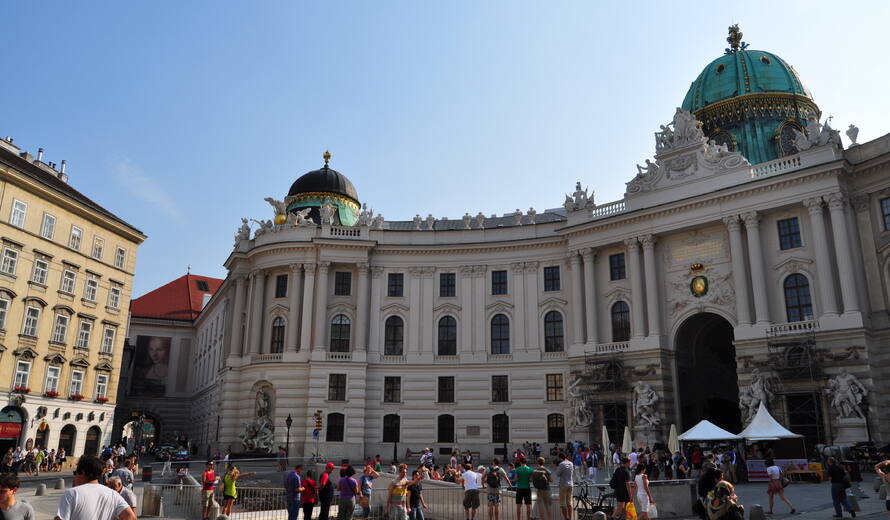Brussels MPs Cieltje Van Achter and Bianca Debaets went to Austria's capital city, Vienna, to get inspiration on urban planning, social housing and cleanliness, reported Bruzz.
Vienna has been hailed as one of the most livable cities in the world by magazines such as The Economist and has nearly twice as many residents as Brussels. Yet its streets are not lined with empty beer cans, plastic and banana peels, which describes all too many pavements in Brussels.
For the travelling MPs, the differences between the Wien Hauptbahnhof and Brussels Midi/South station could not be greater. While Brussels South has bulging bins near its entrance and the smell of urine, Wien Hauptbahnhof has no litter anywhere, apart from a few cigarette butts on the street.
Vienna wasn't always so clean
"It has not always been like this. About 20 years ago we had a huge problem with dog turds. We had to slalom between the sidewalks. We became aware that the city was getting dirtier, but nothing changed," Martina Ableidinger, head of Vienna waste management service MA 48, told Bruzz.
Back then, after many complaints from residents, Vienna's mayor called for action, which prompted the city's waste management to create an action plan to deal with the waste.
Ableidinger told Bruzz that the city saw a change within two to three years. Good waste management comes down to three pillars, according to her. The first pillar includes informing and raising awareness, the second focuses on improving infrastructure, and the third pillar consists of sanctions for non-compliance.
The foundations for the clean city that Vienna is today were laid then. Now, the city has an app to report litter, while it has also installed dispensers with free dog waste bags. The number of rubbish bins has increased to 21,000 with ashtrays, while there are 1,200 separate ashtrays.
For litterers, €35 fines are issued, which, together with other measures, caused a change in mentality, according to Ableidinger. Vienna has many 'troops,' consisting of Ableidinger's staff as well as over 600 civil servants who work for the city that distribute fines on the street.
"When I first did it in 2008 I felt insecure, but most people respond by saying we are right and apologise," one said.
No trash everywhere
The two Flemish-speaking MPs in the Brussels opposition are impressed by the cleanliness of the Austrian capital, according to Bruzz.
"Vienna has almost double the population of Brussels and yet it is a very clean city. It has not always been this way, so change is possible," said Van Achter. "You also have to enforce and hand out fines if something is not in order. That is also done consistently here and that is a big difference with Brussels."
"Change is possible, but the government cannot do it alone. People here have respect for each other and for the city, and that is where the shoe pinches in Brussels," added Debaets.
Vienna's waste management is organised differently from Brussels in other ways. Garbage management does not work with bins that people put on the street twice a week. Vienna's waste management believes that if bin bags are on the street, they will only attract more dirt.
Instead, houses and apartment buildings are required to have a container room for waste on the ground floor, where garbage collectors come to collect household waste. The smaller the room, the less waste there can be which means garbage collections come by more often. Residents in Vienna therefore pay an annual contribution based on the size of the container and how often waste management comes through.
An efficient city
Another difference is how the City of Vienna is organised. Vienna has 100 MPs who are both municipal councillors and MPs. Although Vienna's waste management operates from 124 locations in the city, there is only one administration in charge.
"In Brussels, there are 20 different cleanliness administrations, of which the one large one also functions very badly. How can you be proud of your administration if you no longer know who is responsible for which street," said Van Achter.
"That is the case in Brussels, but it is very clear here," said Ableidinger. "There are districts for very local policy, but the major themes are with the city and the region, and those are the same people. It is clear who is responsible."
"Our people are very proud to work for us," she said. "We also get really good feedback from the Viennese. They love us."

